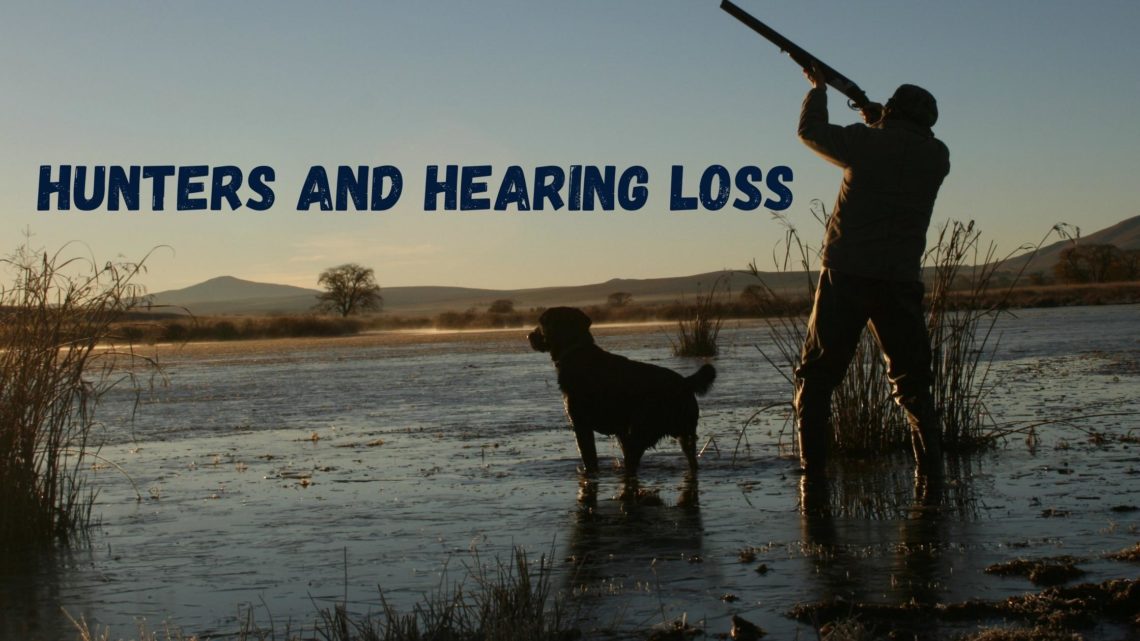Hunting season is quickly approaching and many of us look forward to the thrill of the chase as well as the return to the great outdoors. If you are serious about hunting, then you know that half of the process is preparation and safety. This is because if you are not careful, the use of firearms can quickly not only be bad news for your game but also for your hearing.
Firearms and Hearing Loss
If you are a seasoned hunter then you already know that the best way to preserve your hearing for the future is to always wear hearing protection when you are out in the field. You may think it’s okay to go without it every now and then, but the truth is that you never know when a gun could go off.
It’s not just those who hunt for sport who are at risk. One of the largest complaints from veterans who have been in combat zones is tinnitus and hearing loss. As of 2020 the Veterans Benefits Administration compensation report that more than 1.3 million veterans were receiving disability compensation for hearing loss, and more than 2.3 million received compensation for tinnitus.
Firearms Produce Extreme Decibel Levels
If you use firearms, it’s important to use hearing protection, but even so, your hearing could be at risk. Any sound over 85dB can damage your hearing over time, however as the decibels rise, the time it takes for damage to occur quickly becomes shorter. For instance, at 85dB, it takes 8 hours of constant exposure for damage to start. At just 4 decibels higher, 88dB takes only 4 hours to cause the same amount of damage.
Firearms are dangerous because almost all firearms create noise that exceeds 140dB. A small .22-caliber rifle regularly reaches 140 dB, while big-bore rifles and pistols can create sound exceeding 175dB. Decibels this high can create permanent damage instantaneously!
Understanding Appropriate Hearing Protection
When exposed to daily extreme sounds, standard earplugs and protective headphones can reduce decibels by 15–33dB. However, when decibels can reach such high extremes when shooting these barely are a solution, especially when significant hearing damage can occur after just one shot. The good news is that you can prevent hearing loss when you wear the appropriate hearing protective devices (HPDs) Two types of HPDs designed for shooting sports are electronic HPDs and nonlinear HPDs.
Electronic HPDs: These HPDs come in many styles and amplify softer sounds which could be lost in the field and are key to hunting. When a sound such as a firearm creates extreme decibels, it automatically shuts off sound, protecting your ears.
Nonlinear HPDs: While these HPDs are not electronic, they still let in soft and moderate sounds while reducing decibels at high levels. They achieve this by using a filter or mechanical valve designed to be triggered when a high vibration level is detected, however, the HPDs using filters are reported to be more reliable for shooting.
Wearing Your Hearing Protection Correctly
It is not just important that you wear hearing protection, but you wear it correctly. A loose-fitting set of earplugs or headphones won’t protect you at all from dangerously high decibels. It is up to you to make sure they are worn right. As a hunter, you probably already know how important your hearing is to the sport and craft. However, studies show that only about half of shooters wear hearing protection all the time when target practicing. In the field, hunters are even less likely to wear hearing protection because they make the mistake of not wearing HPDs that can amplify quiet sound which could signal approaching game.
Hearing Loss Due To Firearm Noise
It is often easy for us as hearing health care providers spot hunters who have hearing loss. This is because hearing loss is often pronounced in the ear closest to the shooting arm. Hunters tend to have a high frequency that cuts off consonants such as “s,” “th,” or “v”. This can make everyday conversation frustrating and exhausting as you devote energy towards trying to understand rather than being completely engaged.
Hearing Loss Treatment for Hunters
It is important to address hearing loss, as it can quickly progress into several serious emotional, physical, and mental health issues which are more severe. If you’re worried you might have hearing loss, schedule a hearing test now. We can diagnose your hearing, and help you find the best treatment to help you hear and make sure you can enjoy the hunt without damaging your ears any further.

